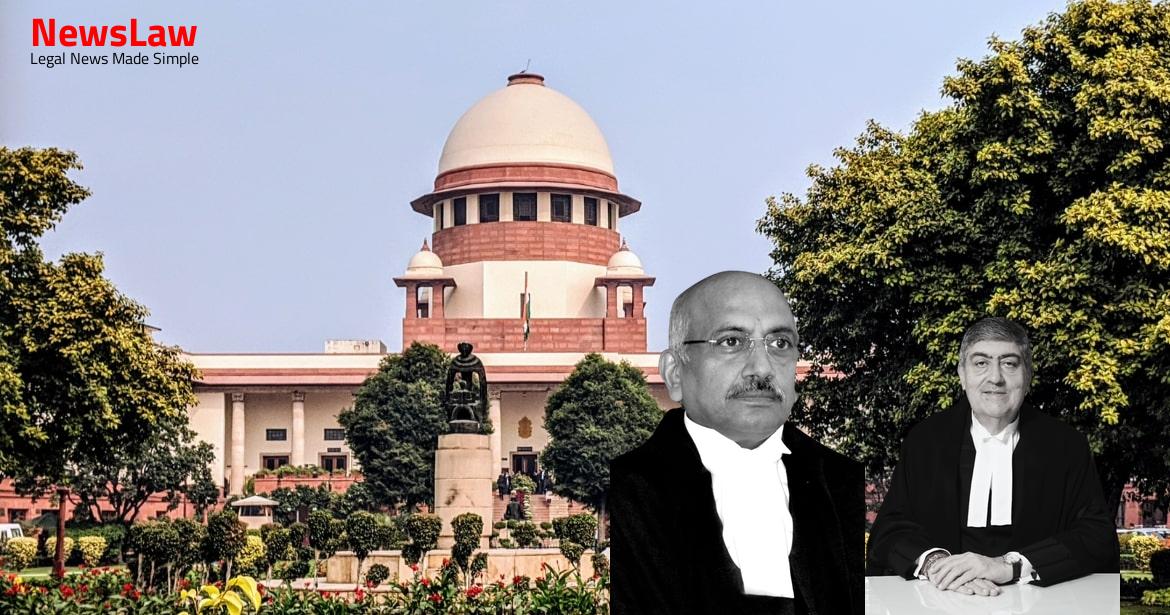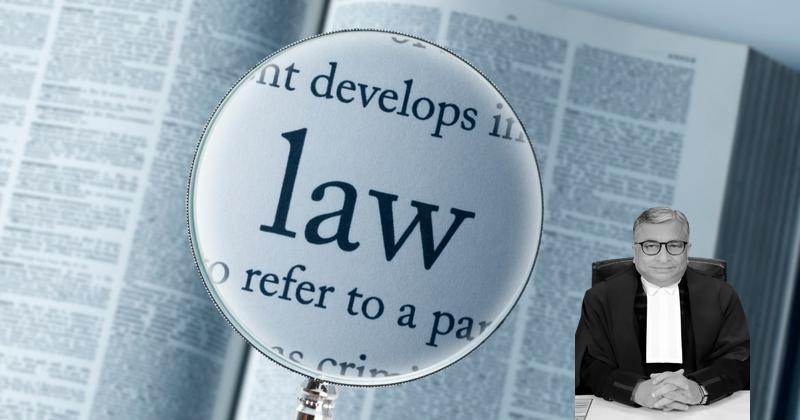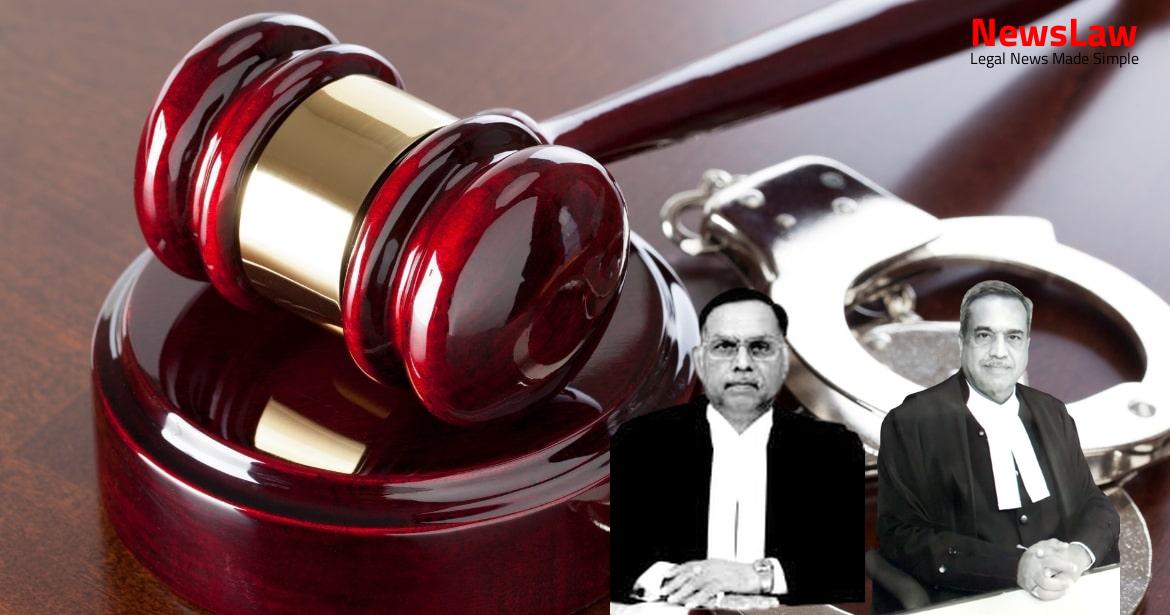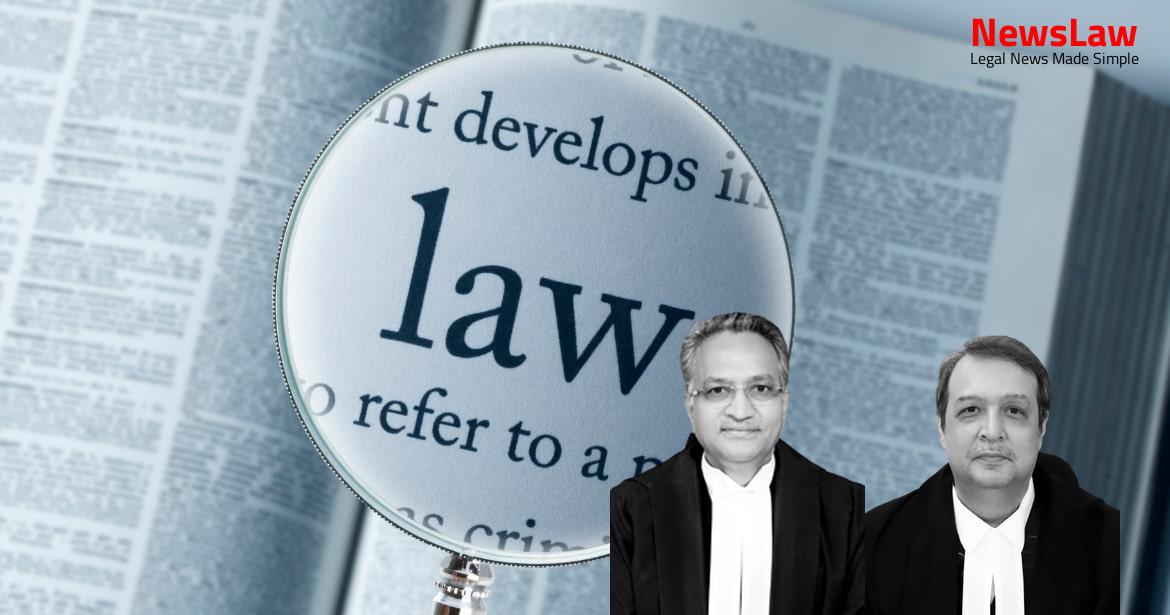In a recent legal case, the court revised the bail condition for the accused, focusing on the legal analysis related to compensation for victims. The court’s decision sheds light on the intricacies of imposing conditions for bail and the interpretation of relevant legal provisions. Let’s delve deeper into the nuances of this case and understand the court’s perspective on the matter.
Facts
- Two persons succumbed to their injuries on 11.11.2019
- FIR registered against 13 persons under various sections of the IPC and Gujarat Police Act
- Appellants arrested as Accused Nos.12 & 13
- Counter FIR filed against complainant and witnesses on the same day
- Chargesheet filed in court after investigations
- Incident on 10.11.2019 alleged to be caused by members of complainant’s caste providing assistance to police
- Bail granted to the appellants in the impugned judgment dated 15.12.2020
- The accused are aggrieved by the bail condition to deposit Rs.2.00 lakh each as compensation to the victims within three months.
- The bail condition was set by the learned trial court.
- The accused are seeking a revision of this condition.
Also Read: Supreme Court Judgment on Single Till Mechanism for HRAB Calculation: A Comprehensive Analysis
Arguments
- Learned counsel for the appellant argues that inadequacy of compensation is appealable under Section 372 of the CrPC, suggesting a conclusion on imposition of sentence and/or fine.
- Appellant seeks parity with other orders for the imposition of conditions for compensation even though their role was minor.
- No provision in the CrPC allows the court to impose compensation condition for bail.
- High Court imposed this condition for bail without specific reference to any provision.
- Learned counsel for the appellants highlighted Section 357 of the CrPC which allows for orders to pay compensation in cases involving fines.
- Essential requirements under Section 357 include imposition of fine or sentence at the time of passing judgment.
- Sub-section (1)(d) of Section 357 allows for the use of fine for compensation when recoverable in a civil court.
- The learned counsel for the State is unable to contest the involvement of the appellants compared to the other accused who were granted bail under specific terms and conditions
Analysis
- The Judge must hear an accused on the question of sentence to support the plea under the Act.
- Sentence must precede the grant of compensation according to the scheme of the Act.
- Accused 3, 9, 10, and 6 were granted bail without the condition of depositing compensation.
- A full-fledged trial is necessary for a sentence to be passed, hence no compensation can be imposed without it.
- Cases of property offences or other offenses cannot be a basis for compensation at the bail stage.
- The direction to deposit compensation for the legal heirs of the deceased cannot be sustained.
- Consideration of whether bail should be granted to the appellants and, if so, on what terms and conditions is essential.
- Specific allegations against Accused Nos. 12 & 13 were related to beating the complainant and witnesses.
- Compensation to the victim in cases of offenses against the body should be a methodology for redemption.
- Monetary conditions can be imposed for bail, but awarding compensation should be post-trial.
- Section 357 of CrPC mandates compensation only after the conclusion of the trial.
- High Court imposed stringent conditions for bail, including geographic restrictions and police station visits.
- Compensation for unnecessary criminal proceedings is to prevent animosity between groups and should be post-conviction.
- Grant of bail is considered based on the principle of not unnecessarily keeping a person in custody.
- Section 250(1) of the CrPC allows for compensation if the accusation is found to be without reasonable cause.
- Under Section 235(2) of the CrPC, the Judge must give a judgment in the case after hearing arguments and points of law.
- If the accused is convicted, the Judge will hear the accused on the question of sentence before passing sentence according to the law.
- Courts must consider the nature of the crime in fixing the amount of fine or compensation.
- The injury suffered by the victim should be taken into account.
- The justness of the claim and the capacity to pay are important factors to consider.
- Other relevant circumstances should also be considered in determining the fine or compensation.
Also Read: Selection and Appointment of Judicial Officers in Himachal Pradesh
Decision
- Condition (f) of the bail requiring the appellants to deposit Rs.2.00 lakh each towards compensation to the victims before the trial court is set aside.
- The appellants are now required to not enter the geographical limits of Amreli for a period of six months, except for marking presence before the concerned police station and attending court proceedings.
- The appeal is allowed with parties bearing their own costs.
Case Title: DHARMESH @ DHARMENDRA @ DHAMO JAGDISHBHAI @ JAGABHAI BHAGUBHAI RATADIA Vs. THE STATE OF GUJARAT (2021 INSC 323)
Case Number: Crl.A. No.-000432-000432 / 2021



